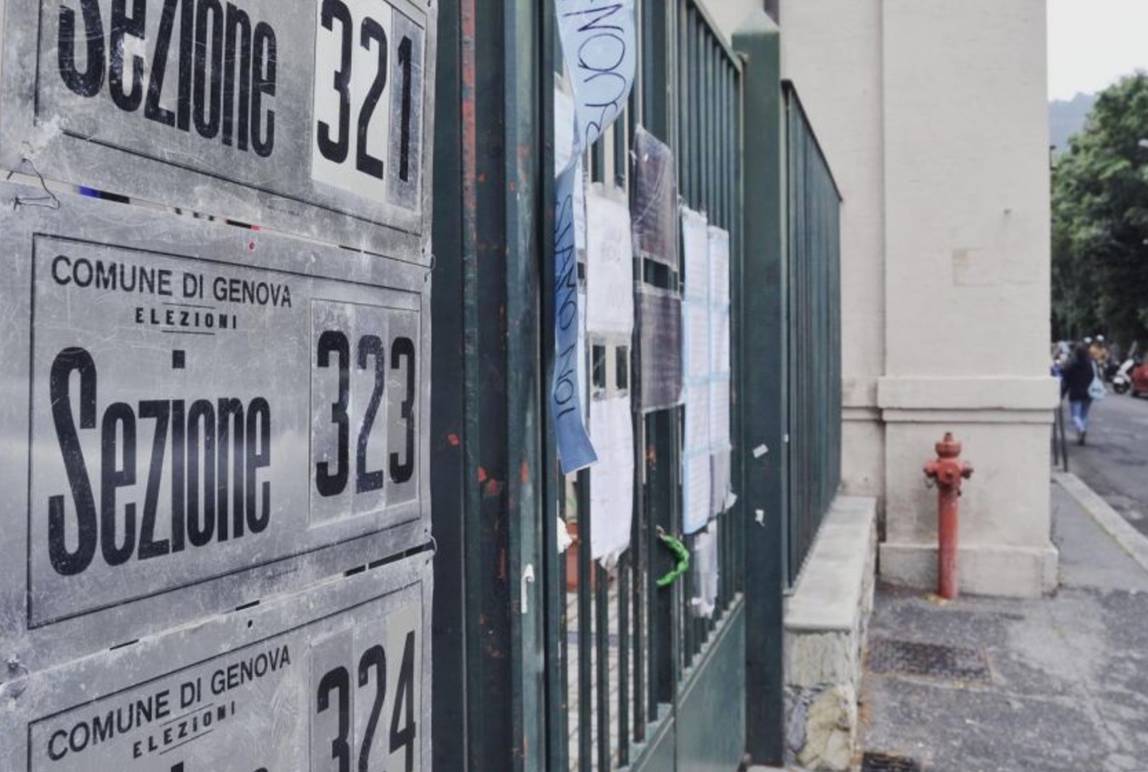Elections in 1,000 Towns Send Shock Waves Thru Italy
ROME -- Partial local elections have rocked Italy. For the first time since it was founded in October 2009 the Movimento Cinque Stelle (M5S) was trounced in an election, winning under 10% in Parma, L'Aquila and Catanzaro. Until Sunday's vote in 1,021 townships throughout Italy, from Palermo in the South to Asti in the North, the party which had led the pack in recent months had never suffered a serious setback. The populist party created by former comedian Beppe Grillo had instead steadily gained consensus, year after year, to the point that the most recent national polls had indicated it as claiming over 30% in an hypothetical national vote.
What national vote? The answer is that, since Sunday, there isn't none. Until the final results were announced June 12, the M5S, together with former Premier Matteo Renzi's Partito Democratico (PD), had been shouting for national general elections to be held in early autumn, six months ahead of schedule. But since the PD -- and, more strictly speaking, Renzi himself -- also took a notable shellacking, the call for an early vote seems suddenly to have been dropped from the political agenda.
Altogether 11 million Italians were entitled to vote in these partial elections. On June 25 a run-off between the two leading candidates will take place in almost all of the 25 largest cities. But already it is apparent that the big winners are the parties of the center-right, which successfully nibbled away at Grillo's M5S. Grillo is fighting back: "Don't fool yourselves," he vowed yesterday. "We are not giving ground." However, serious dissension within the party is reported.
The Palermo election was closely watched in part because, on the basis of its Arab-Norman heritage, the city is UNESCO's culture capital for 2018 and will also host Manifesta, a contemporary art biennale that same year. The apparent outright big winner was Leoluca Orlando, 69, who had already served four terms as Palermo mayor. Backed by Renzi's PD, Orlando had presented himself to voters without that party's symbol, intimating independence from Rome. Losing to Orlando, with just over 16%of the vote, was Grillo's candidate Ugo Forello, 40, lawyer and activist in the anti-racket organization Addiopizzo (Byebyekickbacks).
Another closely watched vote took place in Genoa, home to Grillo's M5S, but also an historically leftist city. Mayor Marco Doria, elected in 2012 with 60% of the vote, chose not to run a second time. With a turnout of under 49%, the two leading candidates, who will face a run-off June 25, are trightist Marco Bucci and left-leaning Giovanni Crivello. Bucci, with almost 39% of the vote, was backed by a pack of seven rightist parties (including Berlusconi's Forza Italia and the Northern League). Crivello won only 34% despite the backing of the PD and three other left-leaning parties. The M5S vote was of barely 18%, half of the votes accorded to the top two.
Since the L'Aquila earthquake that shattered the city in 2009, some 4,500 new dwellings have been built at a cost estimated at 1 billion Euros, but the center of the old town remains largely abandoned. Administration in recent years has been under Renzi's PD, and on Sunday voters, with a turnout of almost 68%, gave Americo Di Benedetto, backed by the PD and eight other moderate mini-parties, over 47% of the vote. In the run-off he will face Pierluigi Biondi, who copped 36% of the vote with the backing of seven conservative parties including Berlusconi's reborn Forza Italia and a group representing Matteo Salvini of the Northern League, "Noi con Salvini." The Grillo candidate won less than 4%.
At Lampedusa, Mayor Giusi Nicolini of the Partito Democratico gained worldwide applause for her careful tending of the island's flood of migrants since her election in 2012. Renzi had her join him at the White House for dinner with President Barack Obama. Just last week Nicolini received the UNESCO Houphouet-Boigny Prize for the search for peace, whose previous recipients included Nelson Mandela, Shimon Peres and Yasser Arafat. In Sunday's local election she was soundly defeated, however. Winning just 908 votes, or under 24% of those cast, she placed third out of four candidates -- too few for her to remain in the local administration.
Although one might have guessed that the Northern League would win hands down at Lampedusa, it copped only 6% of the vote. Instead victory went to Salvatore ("Totò") Martello, who had been mayor 15 years ago. With the backing of a center-left coalition, he won 40.3% of the vote. Today Nicolini announced that she will run again for mayor, "though not with the backing of the PD."





































i-Italy
Facebook
Google+
This work may not be reproduced, in whole or in part, without prior written permission.
Questo lavoro non può essere riprodotto, in tutto o in parte, senza permesso scritto.